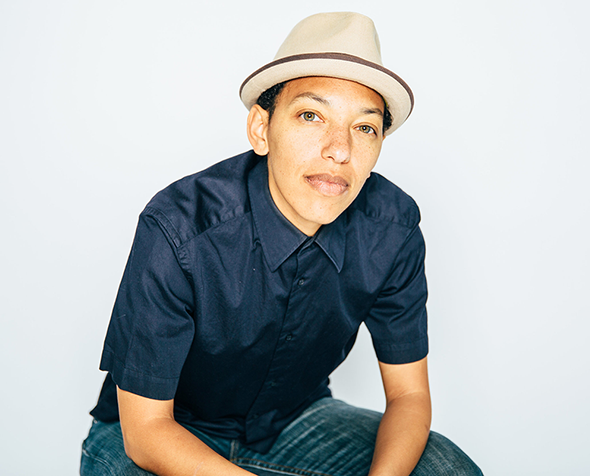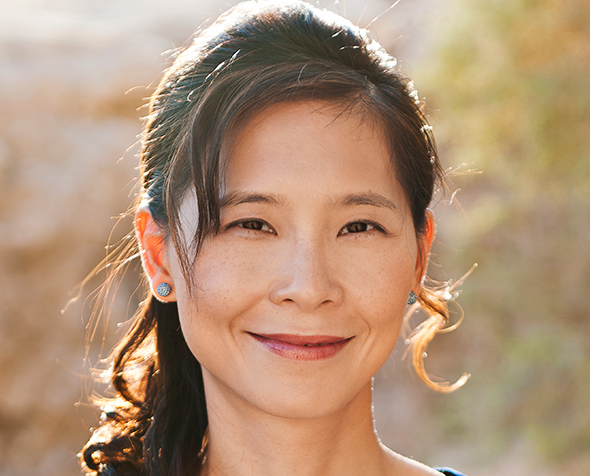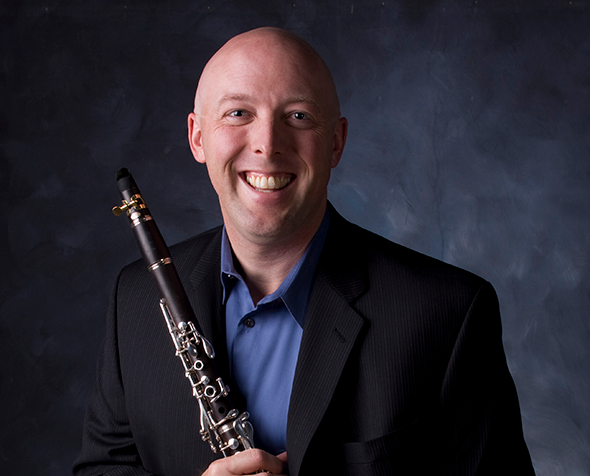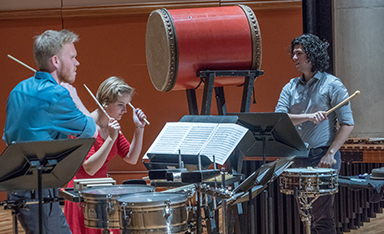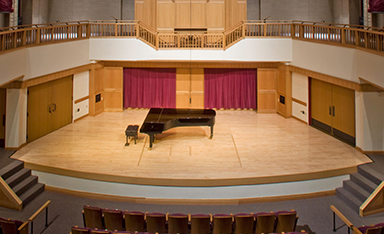Lamont Faculty Profile: Brian Neal
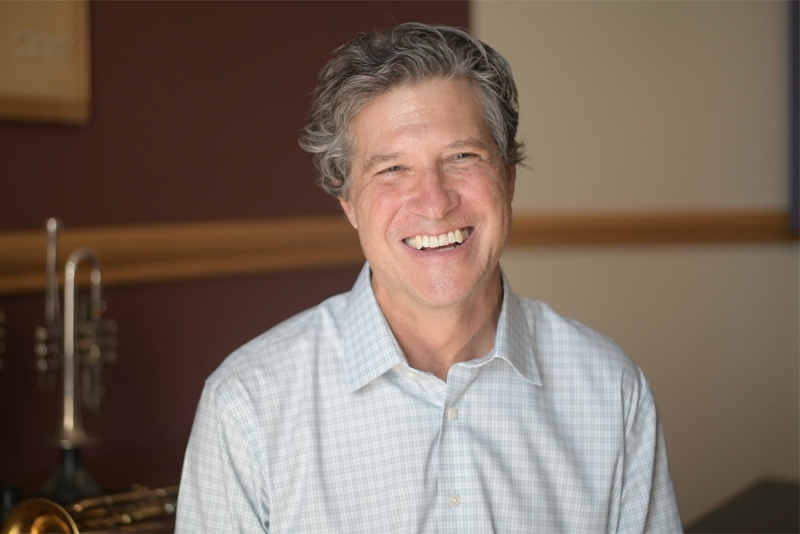
When Brian Neal was growing up in Miami, the city was far from the vibrant arts hub it is today. “It was a wasteland for music,” he recalls. Yet even in that landscape, he found himself captivated by sound—first through bamboo flutes he collected from around the world, later through the trumpet that would define his career.
A turning point came in high school, when he studied with Gilbert Johnson, the former principal trumpet of the Philadelphia Orchestra who had retired to Miami. Johnson became both mentor and model, shaping Brian’s artistry and fueling his decision to pursue music seriously. At the Manhattan School of Music, Brian studied under Raymond Mace and performed at festivals such as Tanglewood and Aspen, experiences that deepened his craft and broadened his horizons.
After completing his master’s degree back in Miami—where he worked as Johnson’s teaching assistant—Brian embarked on a multifaceted career. He played in the New World Symphony, served as principal trumpet of the Miami Symphony, and even composed works for the orchestra. A move to California for further composition study didn’t sever ties; he flew back frequently to continue performing in Miami.
Then came an opportunity that changed everything: joining the Dallas Brass. What had been an orchestral trajectory transformed into decades of chamber music, touring the globe with a group that combined virtuosity with showmanship. “We put on a show,” Brian says with a grin. “Everything was memorized. There was choreography and comedy.” With Dallas Brass, he performed at Carnegie Hall, the Kennedy Center, and venues from Japan to Russia.
Alongside performing, Brian built a substantial teaching career, spending 15 years on the faculty at Miami Dade College. His parallel path as a composer flourished as well. Writing primarily for trumpet and orchestra, he describes his style as “neo-romantic”: melody-driven, emotionally expressive, and accessible. His works have been performed at Carnegie Hall, in Spain, and most recently by the Juneau Symphony. As a soloist, he has appeared with orchestras across the U.S. and Europe, performing staples such as the Haydn Trumpet Concerto.
When his children were grown, Brian began to imagine a new chapter in his professional life. A colleague, DU trombonist Richard Harris, mentioned an opening in Denver. What he discovered impressed him deeply. “What really interested me was the level of the faculty here and their experience. They really are in the highest echelons,” he says. “I thought, I would love to be a part of this group of people, to spur me on in my endeavors and to share in the collegial atmosphere here.”
Brian’s teaching philosophy centers on empowering students to discover their own musical voice. He encourages them to embrace curiosity and even mistakes, which he calls “happy accidents.” “That happens when you’re connected in a visceral way to what you’re experiencing right now playing the instrument,” he explains.
He is already setting ambitious goals for his trumpet studio. Over the summer, he sent his students music to prepare for the National Trumpet Competition, with the aim of recording and submitting by December. “I’m going to work these students hard,” he says, “but it’s the kind of hard work they want.” He also hopes to take the studio on retreat to DU’s Mountain Campus, blending rigorous preparation with community-building.
Outside the classroom, Brian has spent 25 summers teaching at Alaska’s Sitka Fine Arts Camp, where he leads a trumpet seminar for high school students. He is excited to immerse himself in Colorado’s thriving brass community, from the Denver Brass to the Colorado Symphony, as well as the state’s mountains and skiing—an activity he tries to enjoy at least once a year. His wife, meanwhile, continues her own distinguished musical career as a member of the Grammy-nominated ensemble Seraphic Fire.
Looking ahead, Brian sees Denver as both a professional and personal home. “The people here are so kind and supportive,” he says. “And DU’s commitment to helping faculty not only teach but continue to perform…that’s very meaningful.”
From bamboo flutes in Miami to international stages, Brian’s journey has been one of curiosity, artistry, and reinvention. Now, as he begins his chapter at DU, he brings with him not only decades of experience but also an infectious enthusiasm for music’s future.
